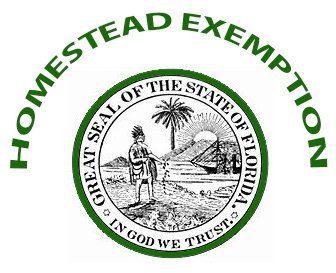State law allows Florida homeowners to claim up to a $50,000 Homestead Exemption on their primary residence.
County links for your convenience:
- The first $25,000 of this exemption applies to all taxing authorities.
- The second $25,000 excludes School Board taxes and applies to properties with assessed values greater than $50,000.
- See below for other exceptions you may qualify for (links are courtesy of Miami-Dade County):
When buying real estate property, do not assume property taxes will remain the same. A change in ownership may reset the assessed value of the property to full market value, which could result in higher property taxes.
Q&A
What is the deadline to file for homestead exemption in Florida?
March 1 of each year is the last day to submit a timely filed homestead exemption application. Nevertheless, the property appraiser’s office will consider homestead exemption applications filed after the March 1 deadline.
Who applies for homestead exemption?
Filing for the Homestead Exemption can be done online. Homeowners may claim up to a $50,000 exemption on their primary residence. The first $25,000 of this exemption applies to all taxing authorities.
How do I qualify for senior homestead exemption?
To qualify for the senior and disabled persons homestead exemption of $25,000, a homeowner must: Own and occupy the home as their primary place of residence as of January 1, of the year for which they apply.
Do I have to apply for a homestead exemption every year?
Once you’re granted a homestead exemption, if you continue to use the same property as your principle residence you do not need to reapply. The agency that handles property matters, frequently called the county assessor’s office, automatically continues the exemption each year.
How long does it take for homestead exemption to take effect in Florida?
To be entitled to receive a homestead exemption in 2019, you must be the owner of record of your property and have established Florida residency by January 1, 2019. If you purchased a property this year to be your homestead, you may apply for theexemption until March 1, 2019, to take effect for the 2019 tax bill.
At what age do you stop paying property taxes in Florida?
If you’re 65 years old or older, and have had a permanent Florida residence for at least 25 years, you may be entitled to a 100% exemption.


